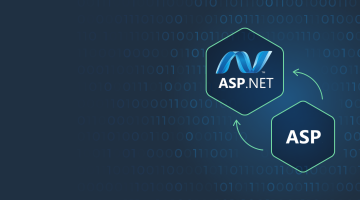

6 good reasons to use ERP for a construction company
During the last years, the majority of large construction companies all over the globe implemented Enterprise Resource Planning Systems (ERPs) to effectively manage and use their resources like human capital, finance, assets, materials, and others. ERP for a construction company has two main functionalities – data management and workflow management. Both functionalities are equally important as they help all stakeholders monitor multiple processes and manage data across the company in real time. Let’s talk this thing over.
What problems can construction management software tackle?
Typically, it takes 1-3 years to implement any complicated software platform for the enterprise. Such systems like ERP cost from tens to hundreds of thousands of dollars. To give you a sense of how feasible these expenses and efforts are, we would like to show you what challenges the construction sector ERP implementation can address.
Problem 1: Improper planning processes can lead to project failure.
According to ConstructConnect, poor planning is one of the five reasons why projects of construction companies fail. Kendall Jones, the author of the article, considers that the more effort and time spent on planning, the better the workers of the construction firm will implement the project. The lack of effective coordination among clients, suppliers, subcontractors, and architects can also cause substandard completion of the project.
Solution: Construction company systems are able to monitor budgetary funds and expenses. An ERP for construction company can provide accurate planning of raw materials, human resources, design, and other resources required for successful project completion.
Problem 2: Inaccurate estimations can cause a refusal to use the services of a certain company.
A lot of firms provide their services on a contractual basis. Before bidding for a tender, these firms need to provide the estimated cost of the project. As we know, different clients may have quite different needs and specifications, which is why they choose the best-suited bid according to the proposed quotes, the firm’s reputation, and the proposed design.
Solution: Construction project management software is able to secure accurate quotes needed for design, raw materials, human capabilities, and the time to complete the project. Additionally, ERP systems can determine how much profit or loss a firm may get from a given project.
Problem 3: Project management processes like assigning tasks and monitoring work progress across multiple departments are always complicated and challenging.
Solution: With robust construction office software in place, managers are able to track the work progress, set milestones, assign tasks, and do lots of other high-value activities. ERP systems provide real-time data as well. On the basis of this data, managers can track time and use this information to bill customers.
Problem 4: Tedious data sharing is inefficient and not secure.
Usually, large construction firms deal with more than one customer. Sharing large amounts of information within departments is time-consuming. Using Excel or PowerPoint is in the past because such type of information exchange is no longer efficient.
Solution: A good ERP system ensures easy data sharing with the help of tools providing high security. Contractors are able to set viewing restrictions for both their customers and workers.
Problem 5: Time-consuming processes slow down the expected streams of return on investment (ROI).
Traditionally, contractors reinvent their vision of ROI. From time to time, they seek for new ways of receiving revenue faster. Time-consuming, tedious, and manual processes hinder development.
Solution: Enterprise-grade solutions help construction firms monitor expenditures for materials and human resources, cut costs for technology, eliminate manual processes, and avoid downtime. All these factors affect the success of business and project implementation as well.
Problem 6: Chaos in the decision-making process can cause problems in the accountability and coordination of projects.
Prior to making decisions, it’s important for contractors to get a comprehensive view of a given situation. Oftentimes, they don’t have such a possibility to get this view in one centralized place.
Solution: ERP systems allow managers to incorporate different types of information, process it, and sort it out according to a certain number of criteria.
As you can see, an ERP for a construction company can solve six main issues — improper project planning, complicated project management, inaccurate estimations, consuming exchange of information, inefficient decision-making, and slow return on investment. At the same time, you learned that to solve these issues, an ERP system should have a certain number of features and modules. Let’s figure out what exactly it should have to work efficiently.
We provide unique software solutions for dozens of industries. Check out our post on ERP in finance
10 core features of ERP for construction industry and infrastructure
A good ERP for construction company should consist of features that ensure streamlined business operations which usually include the following processes: accounting, inventory management, contract, and project management, human resources management, etc. Surely, there are a lot of ERP model views in the construction industry. Let’s focus on the core features.
Project planning and scheduling
Project planning is the first stage of any construction project management process. It can be of three types which are strategic planning, operational planning, and scheduling. The first type determines the project objectives. The second one develops a detailed plan, including meeting the set objectives. And the third type of planning sets schedules of concrete actions to meet the objectives. Any ERP for construction company provides its users with the capability to organize effective project management and follow the plan.
Inventory and materials
Managing construction materials and inventory is always a time-consuming and complex process that requires special knowledge and skills. ERP systems allow easy sourcing, purchasing, planning, storing, and monitoring of raw materials. Besides, this construction ERP module ensures secure control of stores and materials, timely disposal, records of inventory, etc.
Subcontractors
Managing data about subcontractors and work orders is one of the core features required of a good ERP system. Thus, modern solutions for builders and construction firms allow them to estimate subcontractors and, based on the pricing data or other selected criteria, — hire a particular subcontractor.
Human resources
Among the HR issues construction firms face, there are mainly problems related to the ever-changing nature of builders’ work. ERP software helps recruiters and managers hire the right candidates and do many other useful things like managing payrolls, complying with HR regulations, and training employees.
Reports and dashboards
With robust analytics, visual boards, and reporting tools in place, building firms can manage their data in real-time. Here are some examples of activities that they can do with these tools – processing and analyzing Big Data with the help of user-friendly graphs and charts, building dashboards according to a certain number of criteria, exporting visual aids to different formats, assessing statuses and determining risks, and lots of other.
Purchase
Construction companies need many materials, machines, equipment, and other things to provide their engineering, architectural, and building services. A purchase module for ERP system is crucial. It effectively manages inquiries, quotations, orders, reports, and quotation comparison.
Accounting
It’s well known that construction accounting differs from regular accounting. The construction sphere is very mobile, and the accounting module must provide the capabilities to track different types of expenses like packing tools and materials, travel expenses, cost of equipment, and clearing expenses when the project is completed.
Engineering
With a comprehensive engineering module for ERP, firms can manage projects, control, and share engineering data, write proposals, and automate all the processes related to engineering.
Tender and bids
Tender and bid management modules allow for writing tender documentation, making accurate estimations, and bidding. This feature can ensure that the actual expenses won’t deviate much from the allocated pricing.
CRM
A customer relationship management system for builders allows managers to easily track, process, edit, and share customers’ information within the company. This module facilitates an enhanced level of communication between contractors and clients.
These were the core features required to efficiently run the construction project. A construction company can get all these features as a part of a typical out-of-the-box ERP package or as a unique solution tailored according to your specific requirements and business needs.
DICEUS creates bespoke systems according to customer business needs. Learn more about ERP for banking industry
Construction business owners: How to choose the best construction project management software?
To understand what software will be the most suitable for your construction business, you should be aware not only of core features but also of tendencies in software development for construction companies.
Trend 1 – SaaS
Having an ERP system on the cloud means that your managers are able to reach any important information at any time from anywhere.
Trend 2 – LEED tracking
Leadership in Energy and Environmental Design can be of great use for companies dealing with green buildings. They can track if they comply with these regulations.
Trend 3 – Integration
Modern technology systems should be easily integrated with third-party applications, which can be also required by workers to handle operations more efficiently.
Trend 4 – Scalability
Often, large construction firms have multiple contractors, the number of which can rise rapidly. This should be considered beforehand if you plan to scale up your projects.
Trend 5 – Security
Managing construction projects means that you deal with highly sensitive information. ERP for construction must secure document flow and data sharing across the company.
As you can see, these trends are all about modern technologies, security, and flexibility. Unfortunately, free or paid open-source software can’t ensure all these aspects simultaneously that’s why most firms prefer building custom systems. The latter can be developed according to best practices of ERP development to comply with security standards and legislation.
Related article:
Why CRM for construction company is crucial? Which one to implement?
How to order the development of construction company systems?
Custom development is a good fit for those construction business owners who want to obtain a comprehensive system that meets their goals and needs. Before contacting a vendor, you should define the main issues your employees face while using legacy tools for managing construction operations. Make a list of these problems. It will help define the best-suited solutions.
Once you have a list of initial requirements, you can search for a reliable vendor. It’s no longer a problem today to find information about a given company. Thus, check all the available information about the potential vendors. There are a lot of trusted sources and ranking websites over the Internet. These sources provide users with feedback, general information, customer reviews, and even portfolios of thousands of software development firms.
If you’ve already decided on a certain vendor, feel free to contact them and proceed to project estimation and ERP system cost. Based on your initial requirements, a vendor can give you the first estimation. If agreed, they can start building a minimum viable product (MVP) which is a product containing the core features only.
MVP can further serve as a basis for final product development if any add-ons are needed. During your first discussions, you’ll also be able to sign legal documents like contracts or NDAs. Typically, custom development is preferable when you want to use the benefits of using modern technology stacks and implementing a system that meets its users’ needs.
Construction office software from DICEUS
If you run a business in an asset-intensive industry like construction, feel free to consult with our experts. They can develop an integrated enterprise-grade platform for planning, managing, and delivering projects of any complexity. The procedure is quite simple – contact us, tell us about your problems or requirements, get initial specifications, and start collaborating with your dedicated team.





